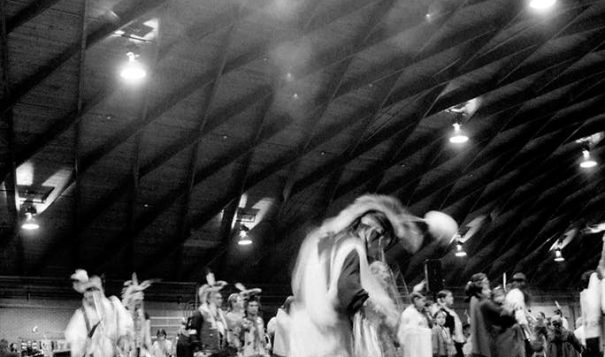
By Lori Jump
Sault Ste. Marie Tribe of Chippewa Indians
Published on Indian Country Today
Intimate partner violence, in all forms, is destructive at its heart. Most people can identify the more common forms of abuse, which include physical, emotional, sexual and financial. One of the lesser known forms, cultural or spiritual abuse, is one of the most devastating, yet it is rarely spoken of.
For Native peoples, spirituality is often the core of who we are and our way of life. Our culture and spirituality are intertwined and provide the foundation of our lives – how we live, our family roles and how we interact with others, the meaning we find in our lives, and our sense of wellbeing. To have our spirit attacked is as personal as an attack can get.
Spiritual abuse can be used to control how a person interacts with the world. Some of these types of abusive behaviors can include when your partner:
● Prevents you from participating in spiritual or cultural traditions
● Forces you to participate in practices (not your own)
● Misstates or misuses spiritual practices against you
● Practices bad medicine against you
For our tribal communities, spiritual or cultural abuse can look like this:
● Telling you that you’re not “Native enough,” or if your partner is non-Native, that you’re “too Indian”
● Uses hurtful stereotypes to put you down (“Indians are drunks, lazy,” etc.)
● Prevents you from participating in ceremonies, pow wows and feasts
● Uses tribal membership against you (“My tribe won’t let you…”)
● Tells you that you’re not allowed to drum, dance, sing, fast or otherwise participate in traditions because of your gender
Each of these behaviors can deeply wound and often isolates you from your community. If your partner is behaving this way toward you, you may feel removed from your family and support system. You may be embarrassed, not know where to turn or who to ask for help.
In some cases, you may even feel that the abuse is the direct result of your culture — that you are being abused because you are Indigenous. This form of abuse is a directly related to the root causes of violence in our communities: colonization and genocide.
If your partner or loved one is demonstrating any of these behaviors or any type of abuse against you, please know that you have the inherent right to be safe, to lead a life free of abuse and to participate in your cultural practices and traditions.
The StrongHearts Native Helpline (1-844-7NATIVE | 1-844-762-8483) is a culturally appropriate, confidential and anonymous service to American Indians and Alaska Natives who are experiencing abuse or know someone who is being impacted by domestic violence. Advocates are available Monday through Friday from 9 a.m. to 5:30 p.m. CST and are trained with an understanding of intimate partner violence, including spiritual or cultural abuse. Our advocates can provide support and validation, safety planning and access to resources in your community. For more information, visit www.strongheartshelpline.org.
When you’re ready to talk, we are here.
Lori Jump is the Assistant Director for the StrongHearts Native Helpline, a confidential and anonymous helpline for Native Americans affected by domestic violence. If you or a loved one is in an abusive relationship, support is available at 1-844-7NATIVE (1-844-762-8483), open Monday through Friday from 9 a.m. to 5:30 p.m. CST. Advocates offer peer-to-peer support and referrals to culturally-appropriate resources for domestic violence. After hours calls may choose to connect with the National Domestic Violence Hotline, and all calls remain anonymous and confidential.
Our goal is to help our community stay informed. The Buffalo's Fire Newsletter is published at 12 p.m. CST every Wednesday. Our digital news site is published by the Indigenous Media Freedom Alliance, a Native-led, Native-woman founded nonprofit media organization based in Bismarck, N.D. We can be reached at 701-301-1296.
By submitting this form, you are consenting to receive marketing emails from: . You can revoke your consent to receive emails at any time by using the SafeUnsubscribe® link, found at the bottom of every email. Emails are serviced by Constant Contact
Jodi Rave Spotted Bear
Jodi Rave Spotted Bear is the founder and director of the Indigenous Media Freedom Alliance, a 501-C-3 nonprofit organization with offices in Bismarck, N.D. and the Fort Berthold Reservation. Jodi spent 15 years reporting for the mainstream press. She's been awarded prestigious Nieman and John S. Knight journalism fellowships at Harvard and Stanford, respectively. She also an MIT Knight Science Journalism Project fellow. Her writing is featured in "The Authentic Voice: The Best Reporting on Race and Ethnicity," published by Columbia University Press. Jodi currently serves as a Society of Professional Journalists at-large board member, an SPJ Foundation board member, and she chairs the SPJ Freedom of Information Committee. Jodi has won top journalism awards from mainstream and Native press organizations. She earned her journalism degree from the University of Colorado at Boulder.
